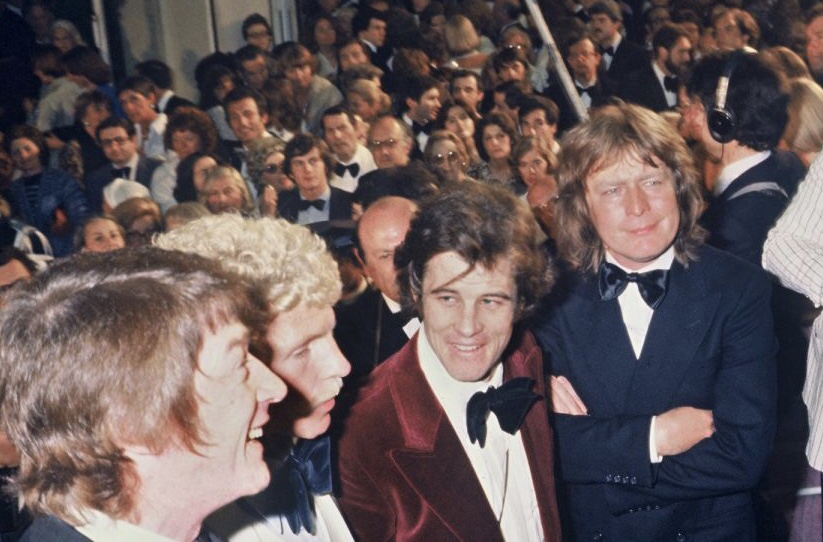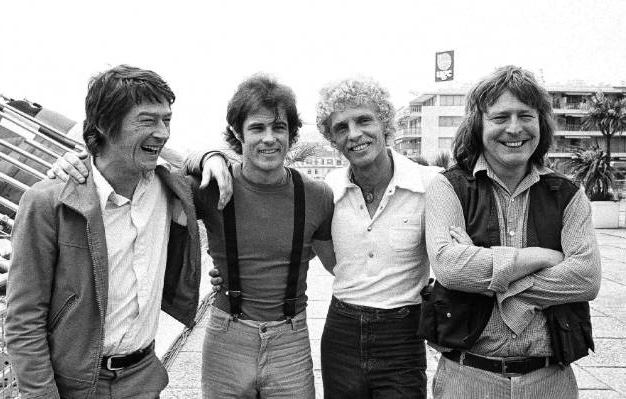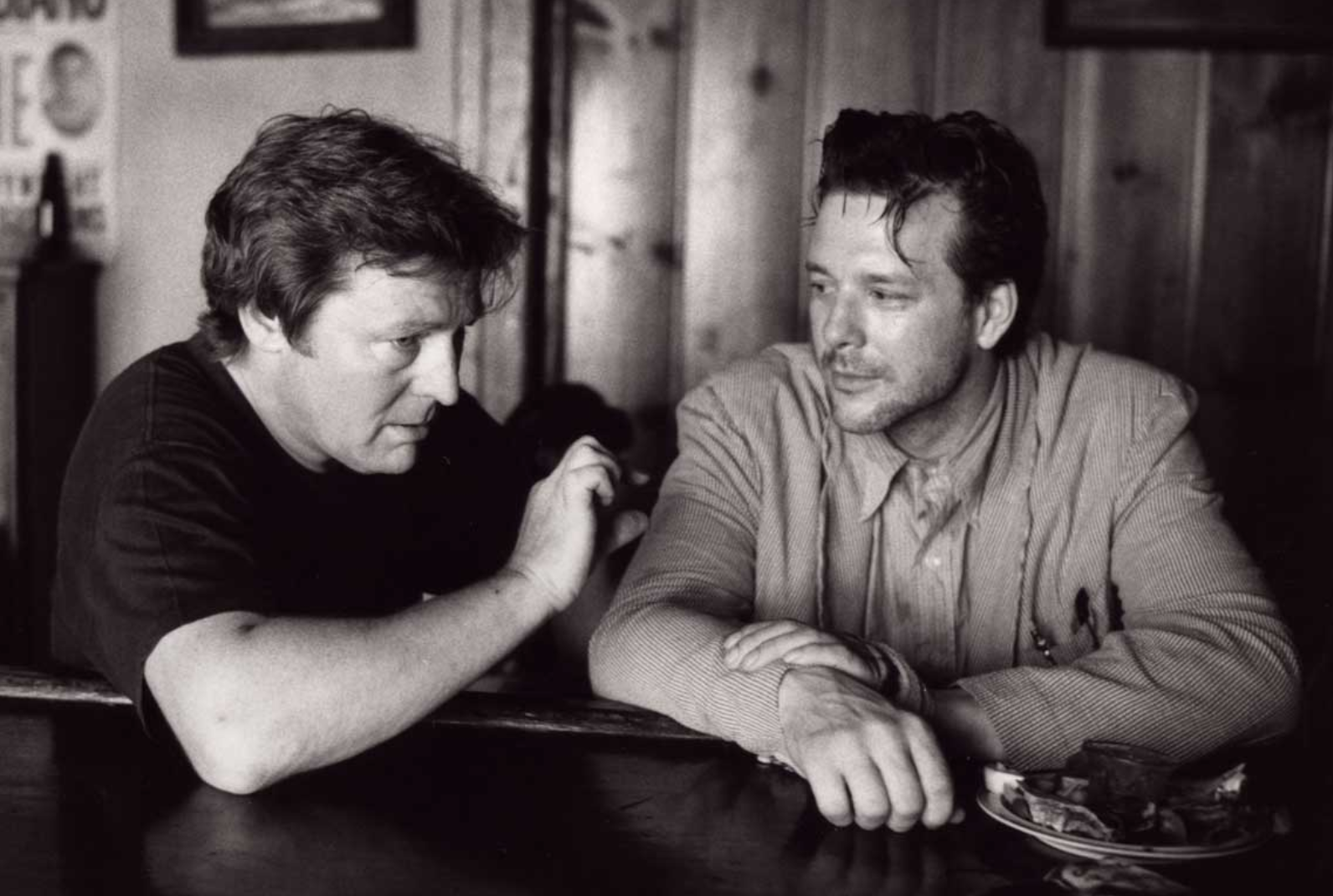Respect and admiration for British director Alan Parker, who’s left us at age 76.
A graduate of the British TV commercial industry, Parker was a first-rate shooter and cutter — he knew how to make films look sharp and polished and feel just right. And he definitely understood the power of great music wedded to handsome, well-cut visuals (Evita, The Commitments, Fame, Pink Floyd — The Wall, Bugsy Malone) And he knew how to create atmospheres of dread and doom (Angel Heart, Mississippi Burning, Midnight Express).
The rap against Parker for many years was that he was a slick salesman who didn’t have much to say. That consensus began to change in the late ’80s when he got his act into gear and crafted four fairly mesmerizing knockouts over the span of eight years. Those films were, in order of excellence, (a) Evita (’96), (b) Angel Heart (’87), (c) Mississippi Burning (’88) and (d) The Commitments (’91).
Parker also made some films that I couldn’t stand — Shoot The Moon, Birdy, Come See The Paradise, Angela’s Ashes. The Life of David Gale. But let’s focus on the good stuff.
Posted on 2.28.18: Is Ava DuVernay‘s Selma a more accurate history lesson than the one provided by Mississippi Burning? Is it more organically truthful? Did it deliver an identity current that translated into a better-than-decent domestic haul of $52,076,908?
Yes to all, but Mississippi Burning is a better film despite all the bullshit it sold. (And let’s not forget that Selma sold some bullshit of its own.)
The key thing is that Mississippi Burning delivered an emotionally satisfying payoff that audiences bought into, and which resulted in earnings of $86 million if you adjust for inflation.
Here’s how I put it on 11.29.14: “Alan Parker‘s Mississippi Burning gets an awful lot wrong about the way things really were in Mississippi in 1964. African Americans did a lot more than sing hymns and watch their churches burn, and we all know that Parker and screenwriter Chris Gerolmo mangled the history of the FBI’s hunt for the killers of three Civil Rights workers (Michael Schwerner, James Chaney and Andrew Goodman).
“Their coup de grace was having a pair of FBI agents, played by Gene Hackman and Willem Dafoe, turn into Dirty Harry-style vigilantes in Act Three, bringing the guilty yokels to justice by playing rough games and faking them out. Pauline Kael called it ‘a Charles Bronson movie.’
“And I’ve never cared that much. Very few have, I suspect. I’ve always had a soft spot for Mississippi Burning for various reasons — the polish of it, Hackman’s performance (particularly his scenes with Frances McDormand), Peter Biziou‘s cinematography, Gerry Hambling‘s editing, the percussive rumble of Trevor Jones‘ music, da coolness. But especially Parker and Gerolmo’s bullshit plot. Because the lies they came up with are emotionally comfortable, and that’s always the bottom line.

“I agree with Gore Vidal‘s old line that ‘the ends never justify the means because there are no ends, only means’, and yet it feels very fulfilling to see vigilante tactics used against racist murderers. Especially after watching Hackman and Dafoe go through weeks of fruitless investigating while the guilty crackers smirk and drink cream soda and chew tobacco.
“If audiences feel that a film is delivering real emotional justice, they’ll always tolerate mistakes and oversights. Even lies. That’s what happened here.
“The moment when Hackman and McDormand exchange silent words in the beauty shop (or more precisely when McDormand passes along important new information) is one of the best scenes Parker ever shot. There’s nothing in Selma that even begins to approach the brilliance of this scene.”
Two or three years ago I wrote that Shoot The Moon “drove me nuts from the get-go, mainly because of the use of solitary weeping scenes (three or four within the first half-hour) and the relentless chaotic energy from the four impish daughters of Albert Finney and Diane Keaton. It was getting late and I just couldn’t take it. I bailed at the 45-minute mark.”
“I was thinking earlier today about poor Albert Finney, and began to surf around. I came upon this Shoot The Moon restaurant scene. It has a striking, abrasive vibe, but it doesn’t entirely work.
“If only Finney and Diane Keaton had been told by director Alan Parker to try and keep their voices down in the early stages, and then gradually lose control. Nobody is this gauche, this oblivious to fellow diners.”


